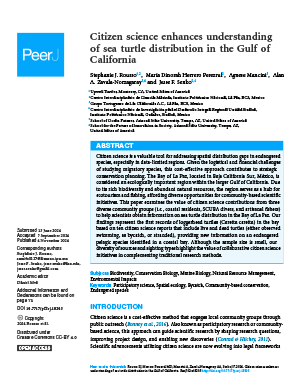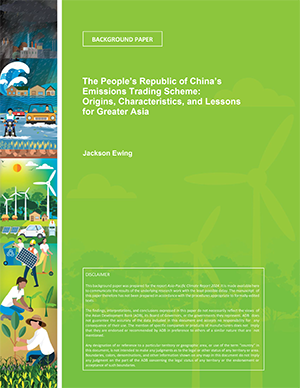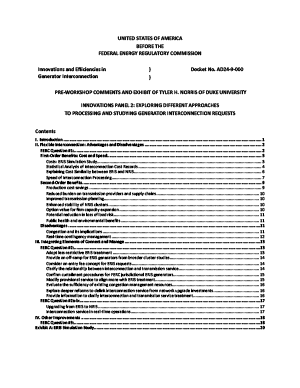Publications
Citizen Science Enhances Understanding of Sea Turtle Distribution in the Gulf of California
Citizen science is a valuable tool for addressing spatial distribution gaps in endangered, migratory species, especially in data-limited regions. This paper examines how diverse community groups (coastal residents, SCUBA divers, and artisanal fishers) contribute to sea turtle distribution information in the Bay of La Paz, Baja California, Mexico. Though the sample size is small, the variety of sources and sighting types highlight the value of collaborative citizen science in complementing traditional research.
Confronting Heat Challenges—Cross-Sector Strategies for National Resilience: A Report from the 2024 HeatWise Policy Partnership Summit
The HeatWise Policy Partnership Summit is a key component of a cyclical two-year program that encompasses stakeholder engagement, event planning, biannual convening, reporting key findings, and outreach to policymakers.
Challenges and Solutions to Permitting Living Shoreline Projects
Despite growing interest and investment in nature-based solutions such as living shorelines in the United States, it has been difficult to expand their use. One major hurdle is permitting challenges. Florida, North Carolina, and Virginia are three states where living shoreline installations have increased. We examined what policy conditions exist in these locations to enable project permitting, as well as how to address any remaining hurdles.
The People’s Republic of China’s Emissions Trading Scheme: Origins, Characteristics, and Lessons for Greater Asia
The People’s Republic of China is using the national emissions trading scheme (ETS) as a tool to bend the country’s emissions curve while cleaning its domestic environment, driving innovation, and capturing a greater share of high-value segments of the global economy. This background paper for the Asia-Pacific Climate Report 2024: Catalyzing Finance and Policy Solutions first explores the origins of the ETS and then looks at its characteristics and performance.
Energy Transitions at a Crossroads: Balancing Growth, Decarbonization, and Development
Can low- and middle-income countries meet human development imperatives while decommissioning fossil fuel infrastructure or avoiding further fossil fuel development? A high-level panel at Climate Week NYC 2024—moderated by Jackson Ewing and featuring executive in residence Alix Peterson Zwane alongside global investment leaders—attempted to address just that.
Do Plastic Clean-Up Technologies Work? What Research Does (and Doesn't) Tell Us
Across all available literature, effectiveness data on plastic pollution clean-up technologies were under-reported, lacked standardization, and were rarely tested by a neutral third party. This makes it difficult to make informed decisions when choosing which clean-up technology to deploy and evaluating the environmental impact of these technologies.
Advancing Consistent Socio-Economic Monitoring of Coastal Ecosystem Restoration Through Collaborative Metric Development
Ecological restoration programs increasingly aim to provide socioeconomic and environmental benefits. However, monitoring of socioeconomic outcomes of these programs lags behind monitoring of ecological outcomes. Socioeconomic methods are less established, managers have less experience, and metrics used vary, stymieing evaluation and adaptive management. Here we demonstrate that logic models and stakeholder engagement can be used to identify core socioeconomic metrics across various types of restoration, focusing on coastal restoration in the Gulf of Mexico.
Wet Bulb Globe Temperature from Climate Model Outputs: A Method for Projecting Hourly Site-Specific Values and Trends
Increasing temperature will impact future outdoor worker safety but quantifying this impact to develop local adaptations is challenging. Wet bulb globe temperature (WBGT) is the preferred thermal index for regulating outdoor activities in occupational health, athletic, and military settings, but global circulation models have coarse spatiotemporal resolution and do not always provide outputs required to project the full diurnal range of WBGT. This article presents a novel method to project WBGT at local spatial and hourly temporal resolutions without many assumptions inherent in previous research.
Comments for FERC Workshop on Innovations and Efficiencies in Generator Interconnection
The Federal Energy Regulatory Commission (FERC) invited Tyler H. Norris, J.B. Duke Fellow and Duke University PhD student, to serve as a panelist at FERC’s Staff-Led Workshop on Innovations and Efficiencies in Generator Interconnection in September 2024. Specifically, Norris was invited to provide analysis and comments related to “connect and manage” and potential improvements to flexible energy-only interconnection options.
Irrigation Technologies and Management and Their Environmental Consequences: Empirical Evidence from Ethiopia
This study develops a unique and comprehensive household and plot-level dataset covering ten districts of Ethiopia complemented with remotely sensed data and qualitative information collected from the study sites. The econometric results show that compared to open-access plots equipped with pump irrigation, other irrigated configurations—especially private groundwater-based systems—have higher vegetation cover and show less susceptibility to the most common environmental concerns mentioned in the survey regions: water logging, soil salinity, and erosion externalities.










